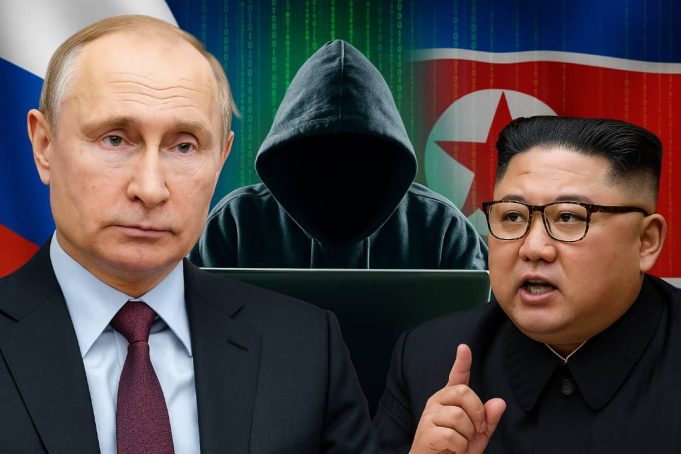LONDON / BRUSSELS / WASHINGTON , Apr 30, 2025
A wave of power disruptions across the UK, Spain, and Portugal, alongside suspicious fires at key substations in London and a series of unexplained undersea cable outages in the North Sea, are now fuelling urgent security briefings across NATO capitals. Senior intelligence sources—some speaking on condition of anonymity—have revealed that these events may not be isolated technical mishaps, but rather the unfolding of a coordinated cyber campaign attributed to a North Korean syndicate working in concert with Russian military cyber units.
The campaign appears calculated, timed, and symbolic—a display of capability rather than a full-frontal assault. But to many across Europe’s defence and intelligence communities, the signal is unmistakable: Russia is beating the war drums again—just as peace talks in Ukraine enter a critical phase.
“Hybrid warfare is underway”
An unnamed French intelligence official confirmed that forensic indicators across several power grid incidents point to sophisticated network intrusions—hallmarks of state-sponsored actors with both funding and access.
“We believe this to be the work of a cyber-syndicate operating out of North Korea, likely at the behest—or with the technical assistance—of Russian GRU affiliates,” the official stated. “This is no accident. These are stress tests against European resilience.”
British and NATO cyber analysts are now urgently examining the simultaneous failure of two North Sea fiber-optic communication cables last week—both used for transatlantic data routing and military signaling. While early reports cited potential trawler interference, multiple sources inside GCHQ and the Dutch Defence Cyber Command now believe the cuts were “surgically precise” and “more consistent with deliberate sabotage than maritime accident.”
Zelensky under pressure as Putin rattles the West
The backdrop to these provocations is as significant as the events themselves. In Kyiv, President Volodymyr Zelensky has signalled readiness to enter ceasefire talks, reportedly under pressure from European allies and facing depleted forces after years of grueling attritional warfare. As part of pre-talk discussions, sources in Brussels confirm that “painful concessions” are now under review—including potential territorial freezes and demilitarised zones.
Yet within hours of these diplomatic overtures, the lights began going out.
“This isn’t a coincidence,” said a former NATO Deputy Supreme Allied Commander. “Russia is telling Europe: You may talk peace, but we control the terms. And if you don’t accept them, we’ll remind you what chaos looks like.”
Russian President Vladimir Putin, meanwhile, has made no public mention of the outages or cable disruptions. However, during a speech to the Federal Assembly two days ago, he warned that Russia would “respond asymmetrically” to any perceived NATO threats and would continue to “reshape the global order in its own image.”
U.S. Steps In as NATO Raises Readiness
In Washington, the Department of Homeland Security and U.S. Cyber Command raised the national cyber threat level to Condition Bravo, mobilising emergency protocols and sending cyber intelligence assets to Europe. White House sources confirmed that the U.S. has offered NATO allies direct technical support, including incident forensics, malware containment frameworks, and operational redundancy protocols.
“The United States is fully engaged,” said a National Security Council spokesperson. “Our allies will not face this threat alone. Critical infrastructure—both in North America and across Europe—is now under hardened cyber defense postures.”
As of this morning, U.S. nuclear power facilities, air traffic control systems, and oil pipelines are operating under elevated lockdown procedures, with increased surveillance of foreign network activity and cyber-military assets on active alert.
A chilling signal—and the possibility of escalation
Whether these events will halt Ukraine peace talks or push NATO toward a more aggressive posture remains uncertain. However, inside diplomatic circles, the tone has clearly shifted.
“Putin is showing the international community once again that he is not a partner for peace,” said a senior EU official. “He is erratic, dangerous, and determined to break the rules of engagement. If this is a prelude to war, we must not be caught unprepared.”
In the words of a British Defence Ministry advisor: “This isn’t just about cables, substations, or flights. It’s about fear. And Russia wants Europe to live in its shadow.”
We will continue to monitor this developing story.










